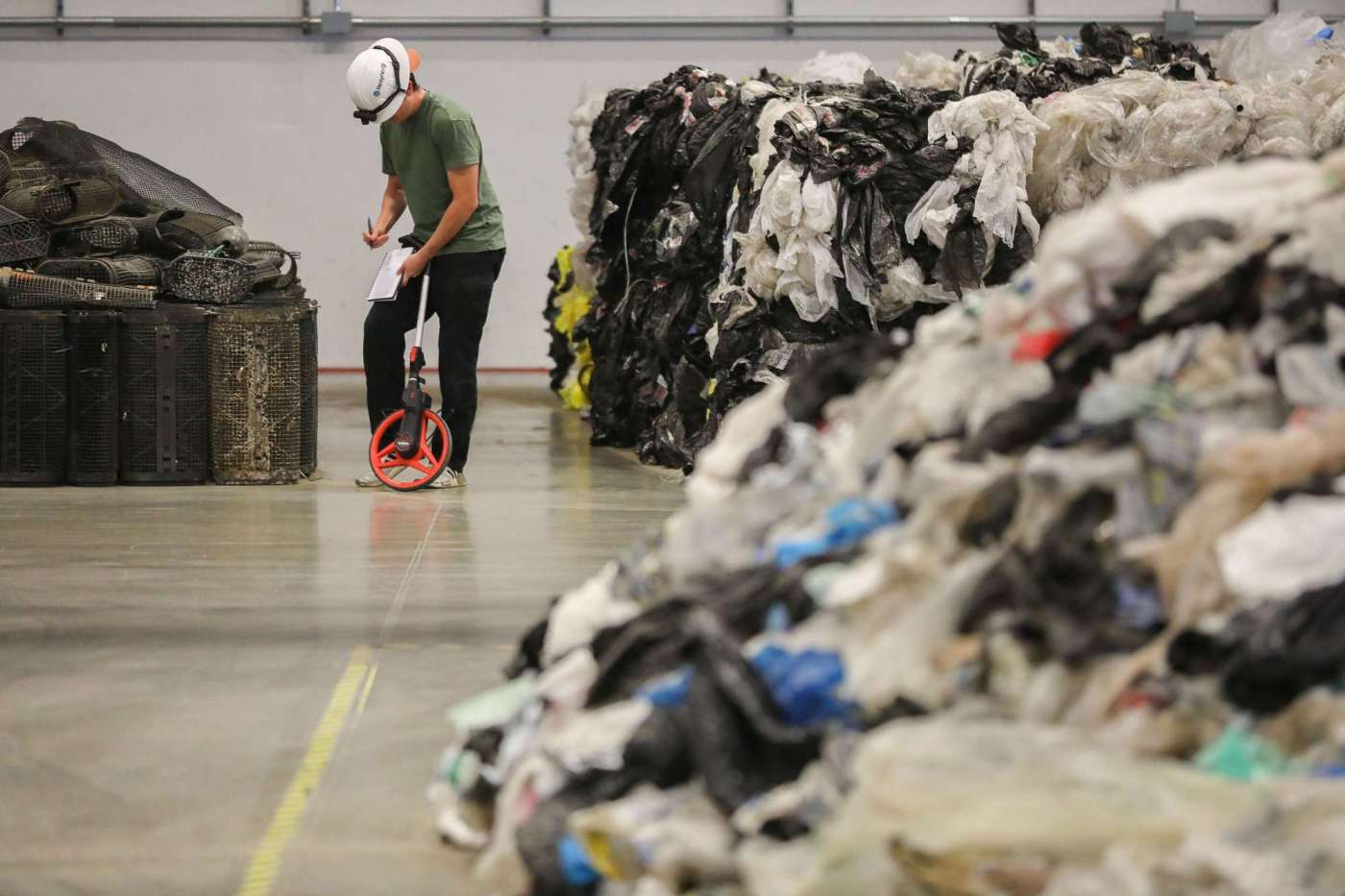
Resynergi Inc., the Sonoma County startup whose decadelong effort to convert plastic waste into new material or fuel, is leaving the state.
The company plans to move from its demonstration site in Rohnert Park to an undisclosed location. The move follows three months of intensifying public backlash against plans for a first-of-its-kind processing facility at its site in the mixed-use SOMO Village and greater scrutiny from regulators.
CEO Brian Bauer said the move, announced in a Thursday morning news release, is driven by mounting regulatory hurdles here and a search for eased permitting and economic incentives elsewhere.
“We’re not sharing yet where (the new site) is, due to ongoing permits and confidentiality, but it’s an area ideal for industrial activity with strong zoning and tax benefits,” Bauer said. The final site selection will be based on where the company secures permits fastest.
Resynergi co-founder and CEO Brian Bauer in front of the plastic pyrolysis reactor skid in Rohnert Park on Monday, Aug. 4, 2025. (Christopher Chung/The Press Democrat) Christopher Chung/The Press Democrat
For now, Bauer said Resynergi intends to follow through on its bid for permits in Rohnert Park, but company officials said that may change in coming weeks.
Since 2015, Resynergi has been developing a modular “advanced microwave-assisted pyrolysis” system that would allow it to process over four tons of certain plastics daily into 69% pyrolysis oil, which can be refined into new plastic or fuel.
Ultimately, the company is seeking to deploy its technology at 200 of the U.S.’s 350 material recovery facilities — the advanced waste-sorting sites geared to direct reusable materials away from landfills.
The project proposed for its southeast Rohnert Park site, located on the nearly 200-acre SOMO Village campus, has faced both mounting opposition from neighbors and heightened scrutiny from regulators in the past three months. What proponents and company officials have characterized as plastics recycling, opposed residents and environmental groups have branded chemical manufacturing, criticizing the project’s initial December 2024 approval at the city level via a staff-approved permit.
Related Articles
Huge housing costs are stressing out California
Companies that moved out of California in 2024 and 2025
Income inequality dipped and fewer people moved, according to largest survey of US life
Do you live here? 41 states where you might outlive your retirement savings
She left the Bay Area for France with her beloved pets, but then her plans took a sad turn after she arrived
Resynergi’s pullout from Rohnert Park is likely to be celebrated by those opponents, who signaled even this week that they intended to escalate their campaign against the production facility.
On Tuesday, dozens of Rohnert Park residents, including homeowners and parents whose children attend a high school within a few hundred feet of the Resynergi site, attended a council meeting and called for the company’s permit to be revoked. During the public comment period, many claimed the city’s permitting process was flawed or accused Resynergi of misrepresenting its project.
“The permit is invalid, illegal, null and void and worthless. It’s issuance is in violation of several parts of municipal code and more and more people are becoming aware of this,” said Patrick Mundy, the father of a ninth-grader who attends Credo High School. The school is within the SOMO Village, the former Agilent campus, which now features a mix of housing and commercial space.
Erich Zuver, a local resident, argued before the City Council earlier this month it’s a “petrochemical refinery advanced without honest review.” Zuver and other opponents argue that such an operation is prohibited based on the zoning for SOMO Village.
The Bay Area Air Quality Management District issued violation notices on Aug. 6, 18 and 20 for unpermitted business at three Resynergi sites — two in Rohnert Park, including its present facility and a defunct one, and its prior test facility in southwest Santa Rosa.
Sonoma County’s Environmental Health Division on Sept. 12 suggested to Resynergi it may need a solid waste permit, because treating pyrolysis is “transformation” rather than recycling under state law.
Resynergi has defended its technology as safe. It uses microwave energy in an oxygen-free slight-vacuum system to break down plastics. The remaining noncondensable gases from that process are sent to a thermal oxidizer with a rated ability to eliminate 99.98% of toxics, according to company officials.
Resynergi hosted an Aug. 6 open house and rallied support at a Sept. 9 City Council meeting, with SOMO Village CEO Brad Baker emphasizing commitment to the community and reliance on independent regulators to vet and clear the project.
However, a stop-work order on Aug. 20 halted progress at the 1200 Valley House Drive processing site due to unpermitted equipment installation, and Cal/OSHA offiicials earlier this month divulged that they were investigating workplace safety.
The move reflects the latest high-profile shift by a California business exiting the state for a more favorable regulatory environment, including a dedicated industrial area and financial incentives.
Bauer expressed gratitude to Sonoma County, crediting local support for advancing the startup through research and development.
“This transition positions us to expand responsibly, diverting plastic waste from landfills and oceans,” Bauer said.